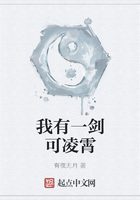BUT WHILE THE PEOPLE OF EUROPE WERE
FIGHTING FOR THEIR NATIONAL INDEPENDENCE, THE WORLD IN WHICH THEY LIVED HAD BEEN ENTIRELY CHANGED BY A SERIES OF INVENTIONS, WHICH HAD MADE THE CLUMSY OLD STEAM ENGINE OF THE 18TH CENTURY THE MOST FAITHFUL AND EFFICIENT SLAVE OF MAN.
THE greatest benefactor of the human race died more than half a million years ago. He was a hairy creature with a low brow and sunken eyes, a heavy jaw and strong tiger-like teeth.
He would not have looked well in a gathering of modern scientists, but they would have honoured him as their master. For he had used a stone to break a nut and a stick to lift up a heavy boulder. He was the inventor of the hammer and the lever, our first tools, and he did more than any human being who came after him to give man his enormous advantage over the other animals with whom he shares this planet.
Ever since, man has tried to make his life easier by the use of a greater number of tools. The first wheel (a round disc made out of an old tree) created as much stir in the communities of 100,000 B.C. as the flying machine did only a few years ago.
In Washington, the story is told of a director of the Patent Office who in the early thirties of the last century suggested that the Patent Office be abolished, because "everything that possibly could be invented had been invented." A similar feeling must have spread through the prehistoric world when the first sail was hoisted on a raft and the people were able to move from place to place without rowing or punting or pulling from the shore.
Indeed one of the most interesting chapters of history is the effort of man to let some one else or something else do his work for him, while he enjoyed his leisure, sitting in the sun or painting pictures on rocks, or training young wolves and little tigers to behave like peaceful domestic animals.
Of course in the very olden days; it was always possible to enslave a weaker neighbour and force him to do the unpleasant tasks of life. One of the reasons why the Greeks and Romans, who were quite as intelligent as we are, failed to devise more interesting machinery, was to be found in the wide- spread existence of slavery. Why should a great mathematician waste his time upon wires and pulleys and cogs and fill the air with noise and smoke when he could go to the marketplace and buy all the slaves he needed at a very small expense?
And during the middle-ages, although slavery had been abolished and only a mild form of serfdom survived, the guilds discouraged the idea of using machinery because they thought this would throw a large number of their brethren out of work. Besides, the Middle-Ages were not at all interested in producing large quantities of goods. Their tailors and butchers and carpenters worked for the immediate needs of the small community in which they lived and had no desire to compete with their neighbours, or to produce more than was strictly necessary.
During the Renaissance, when the prejudices of the Church against scientific investigations could no longer be enforced as rigidly as before, a large number of men began to devote their lives to mathematics and astronomy and physics and chemistry.
Two years before the beginning of the Thirty Years War, John Napier, a Scotchman, had published his little book which described the new invention of logarithms. During the war it- self, Gottfried Leibnitz of Leipzig had perfected the system of infinitesimal calculus. Eight years before the peace of Westphalia, Newton, the great English natural philosopher, was born, and in that same year Galileo, the Italian astronomer, died. Meanwhile the Thirty Years War had destroyed the prosperity of central Europe and there was a sudden but very general interest in "alchemy," the strange pseudo-science of the middle-ages by which people hoped to turn base metals into gold. This proved to be impossible but the alchemists in their laboratories stumbled upon many new ideas and greatly helped the work of the chemists who were their successors.
The work of all these men provided the world with a solid scientific foundation upon which it was possible to build even the most complicated of engines, and a number of practical men made good use of it. The Middle-Ages had used wood for the few bits of necessary machinery. But wood wore out easily. Iron was a much better material but iron was scarce except in England. In England therefore most of the smelting was done. To smelt iron, huge fires were needed. In the beginning, these fires had been made of wood, but gradually the forests had been used up. Then "stone coal" (the petrified trees of prehistoric times) was used. But coal as you know has to be dug out of the ground and it has to be transported to the smelting ovens and the mines have to be kept dry from the ever invading waters.
These were two problems which had to be solved at once.
For the time being, horses could still be used to haul the coal- wagons, but the pumping question demanded the application of special machinery. Several inventors were busy trying to solve the difficulty. They all knew that steam would have to be used in their new engine. The idea of the steam engine was very old. Hero of Alexandria, who lived in the first century before Christ, has described to us several bits of machinery which were driven by steam. The people of the Renaissance had played with the notion of steam-driven war chariots. The Marquis of Worcester, a contemporary of Newton, in his book of inventions, tells of a steam engine. A little later, in the year 1698, Thomas Savery of London applied for a patent for a pumping engine. At the same time, a Hollander, Christian Huygens, was trying to perfect an engine in which gun-powder was used to cause regular explosions in much the same way as we use gasoline in our motors.
All over Europe, people were busy with the idea. Denis Papin, a Frenchman, friend and assistant of Huygens, was ****** experiments with steam engines in several countries.















